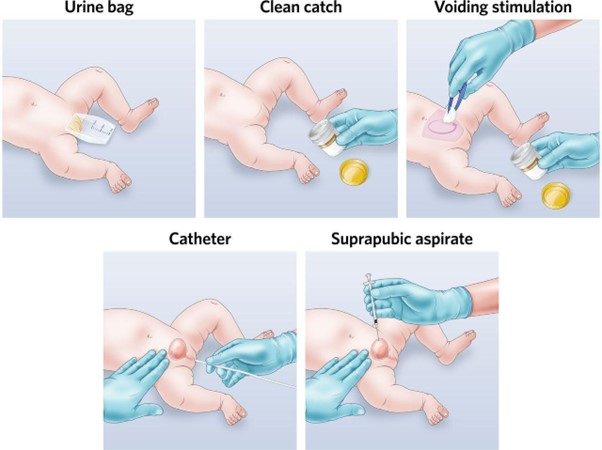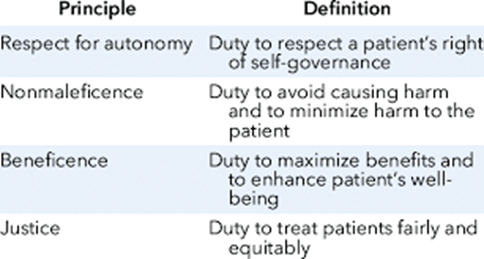A nurse is preparing to catheterize a toddler for a urine culture. Which of the following is an appropriate action for the nurse to take?
Discard the first 10 mL of urine.
Don sterile gloves prior to the procedure.
Obtain a 12-French catheter.
Apply EMLA cream prior to the procedure.
The Correct Answer is B
Choice A reason:
Discarding the first 10 mL of urine is a common practice for obtaining a urine sample for certain tests, but it is not specifically necessary for a urine culture. In a urine culture, the goal is to obtain a sample directly from the bladder to identify any bacteria present, so discarding the initial urine is not necessary.
Choice B reason
Donning sterile gloves prior to the procedure is the appropriate action for the nurse to take. When catheterizing a toddler for a urine culture, it is essential to maintain a sterile procedure to reduce the risk of infection and ensure the safety of the child. Using sterile gloves is a crucial step in preventing contamination during the catheterization process.
Choice C reason
The size of the catheter (12-French) mentioned in option C may not be appropriate for a toddler. The size of the catheter used for a toddler would generally be smaller, depending on the age and size of the child. The appropriate catheter size should be determined based on the child's age and condition.
Choice D reason
EMLA cream is a topical anaesthetic cream used to numb the skin before certain procedures. While it might be appropriate in some cases, it is not typically used for catheterization procedures in toddlers. Catheterization is a quick procedure, and using EMLA cream may not be necessary or practical in this situation.

Nursing Test Bank
Naxlex Comprehensive Predictor Exams
Related Questions
Correct Answer is C
Explanation
Choice A reason
Empowering the client to feel in charge of his life is essential for promoting coping and a sense of control over the situation. However, it may not be the first priority when the client's safety is in question.
Choice B reason:
Finding the client, a temporary shelter where he can feel safe is important for meeting the client's immediate physical needs, but it can be addressed after ensuring his emotional well-being and safety.
Choice C reason
The client's partner has died in a traumatic event, and the loss of both a loved one and their home can be emotionally overwhelming and distressing. The nurse's first priority should be to assess the client's safety and well-being, especially considering the potential for thoughts of self-harm or suicide.
Assessing for thoughts of self-harm is critical because the client may be experiencing intense grief, guilt, or hopelessness, which can increase the risk of self-harm or suicidal ideation. Identifying these thoughts early allows the nurse to initiate appropriate interventions, provide emotional support, and involve mental health professionals if necessary.
Choice D reason
Reviewing the client's available social support system is significant for addressing the client's emotional needs and establishing a support network. However, ensuring the client's safety takes precedence over this action.
Correct Answer is A
Explanation
A. Autonomy is the ethical principle that respects the right of clients to make their own decisions and choices regarding their health care. Informed consent is a process that ensures that clients are fully informed of the benefits, risks, alternatives, and consequences of a proposed treatment or procedure, and that they voluntarily agree to it.
B. Nonmaleficence is the ethical principle that obliges health care providers to do no harm to clients, either intentionally or unintentionally. Informed consent does not directly promote this principle, although it may help to prevent harm by disclosing potential risks and complications.
C. Justice is the ethical principle that requires fair and equal treatment of all clients, regardless of their personal characteristics, preferences, or values. Informed consent does not directly promote this principle, although it may help to ensure that clients are not coerced or manipulated into accepting a treatment or procedure that they do not want or need.
D. Fidelity is the ethical principle that requires health care providers to be faithful and loyal to their clients, and to honor their commitments and promises. Informed consent does not directly promote this principle, although it may help to establish trust and rapport between clients and providers.

Whether you are a student looking to ace your exams or a practicing nurse seeking to enhance your expertise , our nursing education contents will empower you with the confidence and competence to make a difference in the lives of patients and become a respected leader in the healthcare field.
Visit Naxlex, invest in your future and unlock endless possibilities with our unparalleled nursing education contents today
Report Wrong Answer on the Current Question
Do you disagree with the answer? If yes, what is your expected answer? Explain.
Kindly be descriptive with the issue you are facing.
